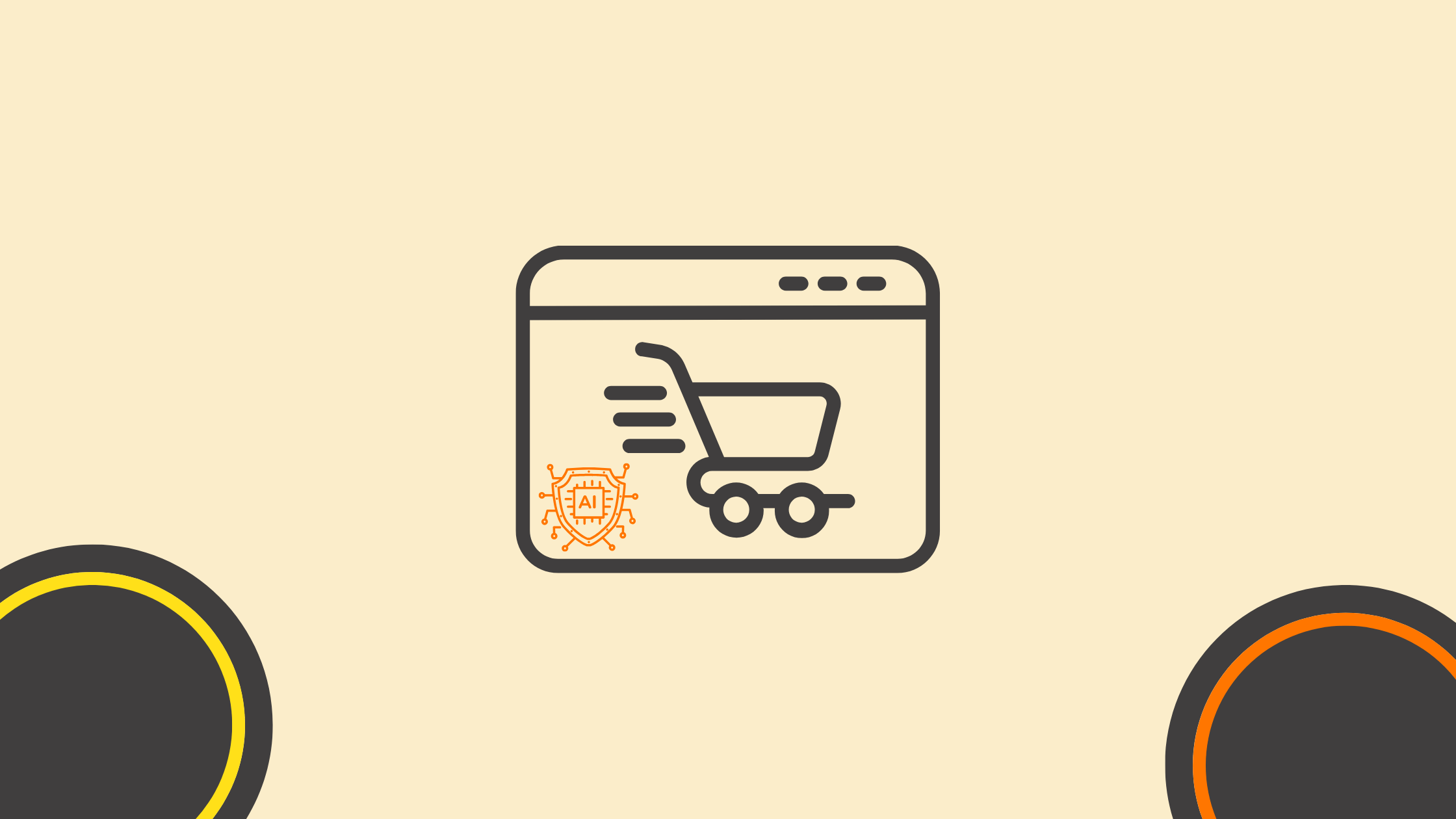How to Secure Your E-Commerce Website
For your customers and for your business
Cyberattacks will always target eCommerce website threats. These are treasure troves of personal and financial information for would-be thieves. And for organizations of all sizes, the cost of a breach, both in terms of data loss and customer trust, can be highly detrimental.
These risks are well-known to e-commerce business owners, who are improving their security procedures. According to the VMWare Carbon Black 2020 Cybersecurity Forecast Study, 77% of organizations polled purchased new security products within the past year, while 69% increased their security team.
Knowing eCommerce security best practices and the types of attacks to anticipate is the best way to remain ahead.
What is E-commerce Security?

The most crucial aspect of an eCommerce website, or at least should be, is security. Without adequate protection, internet business owners expose themselves, their brand, and their customers to the risk of identity theft and fraud. Not to mention that compromised credit card information can wreak havoc on your business’s finances and result in substantial losses.
Small E-Commerce websites are constantly at risk. According to data from web security company Imperva, approximately a third of a website’s traffic consists of malicious bots.
In addition to monetary theft, security or data breaches harm your company’s reputation. Why should you expect your consumers to feel safe spending money with you if you won’t spend money on a non-secure eCommerce website?
Hence, E-Commerce security ensures that both your business and customers feel secure.
E-Commerce Website Security Tips
We have created a list of tips to assist you in securing your eCommerce website threats.
1. Keep your website updated
As app developers discover vulnerabilities, hackers find ways to exploit them. Software updates for websites are frequently released and frequently include essential security patches.
As a result, you should pay close attention to changes as they’re implemented. If your updates need to be automated, you must be extra careful to update them manually. Nonetheless, it is advisable to enable automatic updates for both your website and your complete PC.
2. Regularly back up your website data
Backing up your eCommerce website will not prevent security attacks but will help mitigate or reduce the harm. It protects information from being lost, compromised, or kept hostage.
It is a wise E-commerce business practice to back up your website as frequently as feasible. Every time you update, you should create a backup of the website. You should back up your website at least once every three days, but daily backups are highly advised.
You may set up automatic backups, so you don’t have to initiate the process manually. Almost all website builders and web hosts include website backups as a standard feature; choose a platform that can guarantee this.
3. Use HTTPS
Certified HTTPS websites are identified by a closed secured lock icon in the browser’s address bar and are deemed authentic and secure. This indicates that the website is authentic and not a phishing site designed to steal login credentials, credit card information, and other sensitive information.
To take continuous benefit of website security, it is essential to renew SSL timely, which will avoid unwanted browser warning while surfing your site. Users will have smooth browsing experience on your site. So, renew SSL certificate today and save your customers from prying eyes.
The benefits of adopting HTTPS extend beyond security and credibility. Google ranks SSL websites higher in search results, resulting in increased traffic. In contrast, Google labels unencrypted websites as “not secure,” making them appear shady and dangerous. There are now a few quick techniques to convince a potential buyer to bypass your website.
4. Choose a Secure E-Commerce Website Platform

Often, eCommerce platforms for B2B or B2C are chosen for their storefront-building efficiency, variety of design options, and usefulness, but security aspects must also be a priority. Consider e-commerce solutions with secure payment gateways, SSL certificates, and robust authentication methods for vendors and purchasers.
Sullivan suggested considering the long-term stability of an e-commerce platform and how frequently upgrades and security patches are applied to protect the service’s long-term security. Additionally, integrating cpq software can streamline the quoting process, ensuring accurate pricing and product configurations while maintaining security.
“Consider the software’s ongoing life cycle before integrating it into your e-commerce platform,” Sullivan advised.
5. Get PCI Compliant
The Payment Card Industry Data Security Standards (PCI-DSS) are principles organizations follow to prevent fraud. The PCI SSC was formed by collaborating with global credit card businesses (Payment Card Industry Security Standards Council). It comprises twelve primary requirements and several sub-requirements that evaluate an organization’s security policies. This policy is carefully enforced for all valid reasons.
6. Monitor Transactions
A further method of securing your e-commerce store is to record and analyze all transactions often. Compile a list of customers and their respective transactions. Concentrate on significant transactions and frequent consumers in particular. Examine the transactions for any indications of unusual behavior, such as conflicting billing and shipping information, frequent returns and cancellations, etc.
7. Use Safe Passwords
According to the Verizon Data Breach Investigations Report for 2020, 37% of credential theft incidents used stolen or weak credentials. It is worth the extra effort to ensure that you, your employees, and your customers follow best practices for strong passwords:
- Strong passwords contain uppercase, lowercase letters, numbers, and symbols (@,#,%) & are at least eight characters long.
- Passwords should never be shared; users should have unique, private login usernames and passwords.
- Never use the same password for multiple login credentials on your ecommerce site.
- Never divulge sensitive information in public, such as your date of birth, social security number, or any other information you might use to answer security questions. Use a password manager whenever possible.
A reliable password manager generates unique credentials for each account and stores them securely, eliminating the risk of password reuse across multiple platforms
How AI Can Help Secure Your E-Commerce Website

E-commerce is booming, but so are cyber threats. Hackers constantly target online stores, aiming to steal sensitive data, disrupt operations, or commit fraud. If you run an e-commerce business, security should be at the top of your priority list. Fortunately, artificial intelligence (AI) is changing the game, helping businesses safeguard their websites more effectively than ever.
Let’s dive into how AI can enhance e-commerce security and keep your business—and customers—safe.
AI-Powered Fraud Detection
One of the biggest threats to e-commerce sites is fraudulent transactions. Traditional fraud detection methods rely on predefined rules, which can miss sophisticated scams. AI, on the other hand, analyzes massive amounts of data to detect unusual patterns in real time.
How It Works:
- AI systems monitor transaction behaviors, flagging anything that deviates from the norm.
- Machine learning algorithms adapt over time, improving their ability to recognize fraudulent activities.
- AI can assess multiple data points—such as location, device type, and past purchasing habits—to determine if a transaction is legitimate.
Example: If a user suddenly makes a high-value purchase from an unfamiliar location, AI can trigger additional verification steps, reducing the risk of fraud.
Automated Threat Detection and Prevention
Cybercriminals constantly evolve their attack strategies. AI-driven security tools can detect and neutralize threats before they cause damage.
Key Benefits:
- Real-time monitoring: AI scans websites for vulnerabilities, malware, and suspicious activity 24/7.
- Predictive analysis: Machine learning can forecast potential security threats based on past attack patterns.
- Immediate response: AI can automatically block malicious IP addresses, suspicious login attempts, or unauthorized access.
Example: AI-powered firewalls can recognize and block Distributed Denial of Service (DDoS) attacks before they overwhelm a website.
Enhanced User Authentication
Weak passwords and stolen credentials remain major security risks. AI enhances authentication methods to ensure only legitimate users access your website.
AI-Based Solutions:
- Behavioral biometrics: AI analyzes how users interact with a website—mouse movements, typing speed, and touch gestures—to verify identity.
- Facial recognition & fingerprint scanning: AI strengthens login security by integrating biometric authentication.
- Adaptive authentication: AI adjusts security measures based on risk factors. If a login attempt seems suspicious, it may require multi-factor authentication (MFA).
Example: If a customer usually logs in from New York but suddenly tries from a foreign country, AI can prompt additional security questions.
AI-Driven Bot Detection
Bots are a major threat to e-commerce sites, responsible for fake account creation, scraping product prices, and launching brute-force attacks. AI helps differentiate between human users and bots.
How AI Fights Bots:
- Analyzing behavior: AI identifies suspicious activity, such as rapid-fire login attempts or excessive page requests.
- CAPTCHA alternatives: AI-based systems use invisible challenges that don’t disrupt real users.
- Blocking malicious bots: AI tools can blacklist harmful bots while allowing good ones, like search engine crawlers, to operate freely.
Example: AI-powered tools can prevent automated checkout bots from hoarding limited-edition products and reselling them at inflated prices.
Secure Payment Processing
E-commerce businesses handle sensitive financial information, making secure transactions essential. AI enhances payment security by:
- Detecting and blocking unauthorized transactions in real time.
- Identifying irregularities in payment behavior.
- Encrypting payment data to protect it from breaches.
Example: AI-powered fraud detection systems used by payment processors like PayPal and Stripe help reduce chargebacks and fraudulent payments. For customers, choosing the safest way to pay online means relying on platforms that incorporate advanced AI security measures to safeguard their transactions and personal information.
AI-Assisted Data Protection
Customer data is a prime target for cybercriminals. AI strengthens data security through:
- Automated encryption: Protecting sensitive data both in transit and at rest.
- Anomaly detection: AI can spot unusual access patterns, preventing data leaks.
- Automated compliance: AI helps businesses adhere to security regulations like GDPR and PCI DSS by monitoring compliance requirements.
Example: If AI detects unauthorized access to customer data, it can immediately alert administrators and restrict access.
AI is revolutionizing e-commerce security by detecting fraud, blocking cyber threats, and safeguarding customer data. As cyberattacks become more advanced, businesses must adopt AI-driven security measures to stay ahead.
If you run an online store, investing in AI-powered security isn’t just an option—it’s a necessity. By leveraging AI, you can protect your website, build customer trust, and ensure smooth business operations.
Want to keep your e-commerce site secure? Start integrating AI-powered security solutions today!
Conclusion
Implementing adequate eCommerce security is crucial to the success of your organization. You must keep the trust of your consumers by disclosing their personal information. By utilizing a SaaS platform such as BigCommerce, you can devote more time to building your business and less time to security monitoring and maintenance.
Using the aforementioned security measures and maintaining up-to-date software to secure your eCommerce website is the most excellent approach to maintaining peace of mind. Best of luck securing your website and attracting customers!
FAQ
What is a secure e-commerce website?
A secure e-commerce website is one that protects customer data, ensures safe transactions, and defends against cyber threats, typically through encryption, secure payment gateways, and regular security audits.
How do you ensure the security of an e-commerce website?
Employ SSL certificates for encryption, use secure payment gateways, regularly update software and plugins, implement strong passwords, and conduct regular security audits.
What is SSL and why is it important for e-commerce?
SSL (Secure Socket Layer) is a security protocol that encrypts data transmitted between a web server and a user’s browser. It’s crucial for e-commerce to protect sensitive customer data, like credit card information.
How can you protect customer data on an e-commerce site?
Use encryption methods like SSL, store minimal customer data, regularly update security protocols, and comply with data protection regulations like GDPR or CCPA.
What are common security threats to e-commerce websites?
Common threats include hacking, phishing attacks, malware, SQL injection, and DDoS attacks.
How important are regular backups for e-commerce sites?
Regular backups are vital to quickly restore your website in case of data loss due to security breaches or technical issues.
What role does a secure payment gateway play in e-commerce?
Secure payment gateways encrypt and securely process payment information, reducing the risk of fraud and data breaches.
How can you detect and prevent fraud on an e-commerce website?
Implement fraud detection tools, monitor unusual activity, use verification methods like CVV and OTP, and maintain a secure checkout process.
Why is it important to update e-commerce platforms and plugins?
Regular updates fix security vulnerabilities, enhance functionality, and protect against the latest cyber threats.
What is two-factor authentication and should e-commerce sites use it?
Two-factor authentication (2FA) adds an extra layer of security by requiring two types of identification before granting access. It’s highly recommended for e-commerce sites to protect user accounts.
Author
Written by: Dan Radak
Master the Art of Video Marketing
AI-Powered Tools to Ideate, Optimize, and Amplify!
- Spark Creativity: Unleash the most effective video ideas, scripts, and engaging hooks with our AI Generators.
- Optimize Instantly: Elevate your YouTube presence by optimizing video Titles, Descriptions, and Tags in seconds.
- Amplify Your Reach: Effortlessly craft social media, email, and ad copy to maximize your video’s impact.